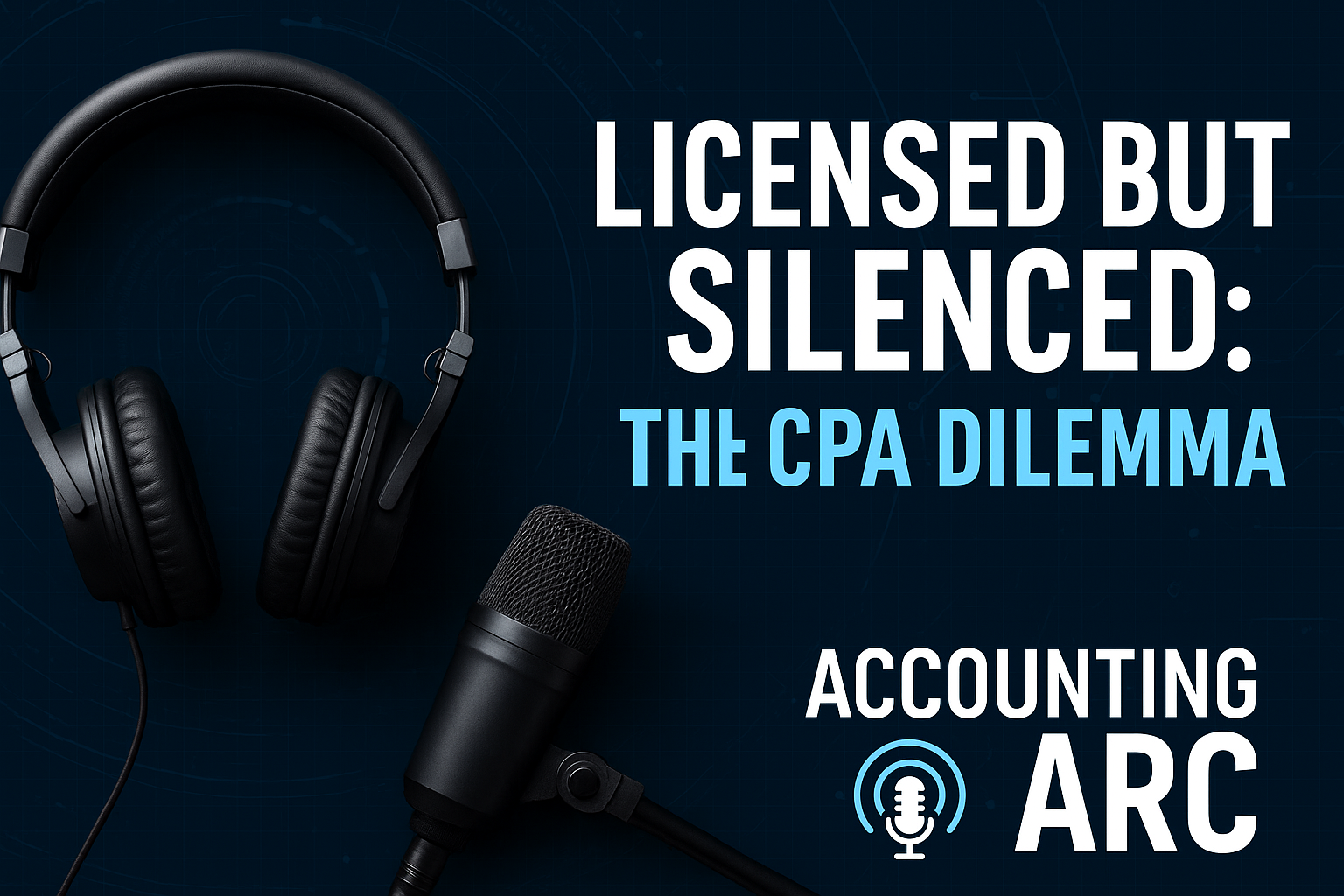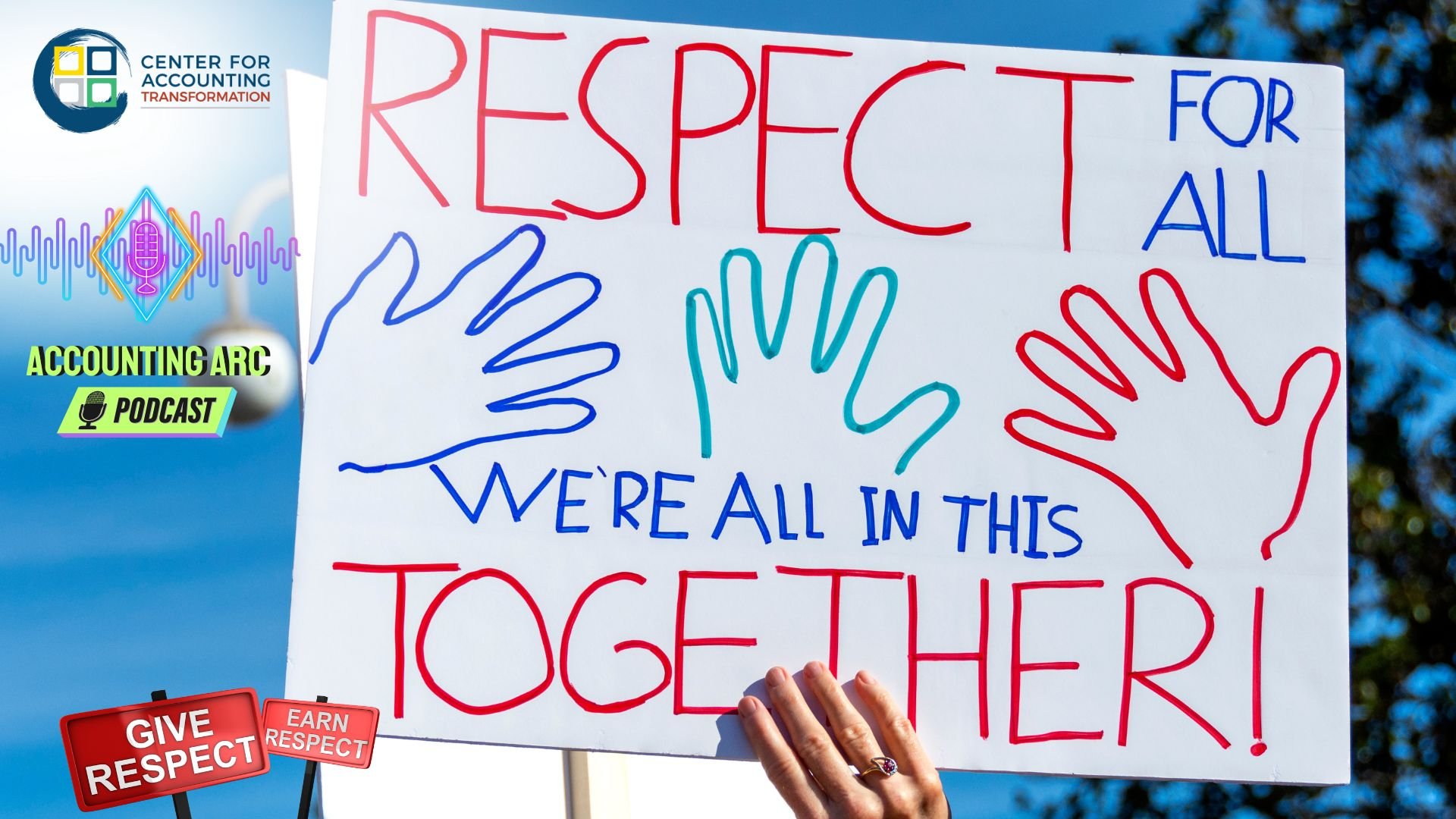0
Licensed But Silenced: The CPA Dilemma

Outdated state laws and new practice structures collide, leaving CPAs questioning how—and if—they can display their credential.
For most certified public accountants, the letters “CPA” are more than a credential. They represent years of hard work, a deep commitment to ethics, and a badge of credibility that sets them apart. But in today’s accounting landscape, those same three letters are at the center of a growing controversy.
On a recent episode of Accounting ARC, hosts Liz Mason, CPA; Byron Patrick, CPA.CITP, CGMA; and Donny Shimamoto, CPA.CITP, CGMA, unpacked the complex—and sometimes absurd—rules around when CPAs can publicly display their credential.
Outdated laws meet modern practice
Patrick, CEO of VERIFYiQ and co-founder of TB Academy, recalls the pride he felt when he first earned the license. “The first thing I did was order checks with ‘CPA’ on them,” he says. But today, some CPAs are told not to put their credential in email signatures, on LinkedIn, or even on business cards—especially if they work in a firm with an alternative practice structure (APS).
APS models separate the firm into two entities: one licensed for audit, and another for non-licensed services like consulting, tax, and client advisory. CPAs working in the non-licensed entity may be restricted from calling themselves CPAs, even if fully licensed.
Mason, CEO of High Rock Accounting, notes that state rules have long complicated matters. “Some states require your CPA to be displayed exactly as it appears on your license, down to the legal name,” she says. “It’s an outdated system that hasn’t evolved with the profession.”
Shimamoto, founder and managing director of IntrapriseTechKnowlogies LLC and founder and inspiration architect for the Center for Accounting Transformation, adds that Hawaii’s unique two-tier system—one license for passing the exam, another “permit to practice” for those maintaining CPE—forced him to register his IT consulting business as a CPA firm simply to use the credential.
Who does this really protect?
The original rationale behind these restrictions was consumer protection. Regulators feared the public might assume “CPA” implied assurance on financial information where none was provided.
But the hosts argue the rules may now do more harm than good. “From an ethical perspective, I struggle with licensed CPAs being asked to hide that they’re CPAs,” Patrick says. Mason agrees, noting that misconduct can still be reported to state boards regardless of whether a CPA is working under a licensed firm.
Adding to the confusion is the public’s limited understanding of what CPAs do. “Most people on the street hear CPA and think tax preparer,” Mason says. “That shows the need for education more than restrictions.”
A profession at a crossroads
The discussion also touches on the bigger picture: ownership rules, private equity investment, and independence concerns. Mason cautions that loosening ownership requirements could erode the profession’s ethical foundation. Shimamoto counters that clearer branding between CPA firms and their affiliates could reduce confusion without diminishing standards.
Despite their differences, the hosts agree on one point: the current patchwork of regulations is outdated. “We need to revisit what public protection really means today,” Shimamoto says.
Mason sums it up: “Displaying the CPA license has value. Restricting it only hurts the profession—and the public’s trust in it.”
Don’t miss an episode. Be sure to SUBSCRIBE below:

















